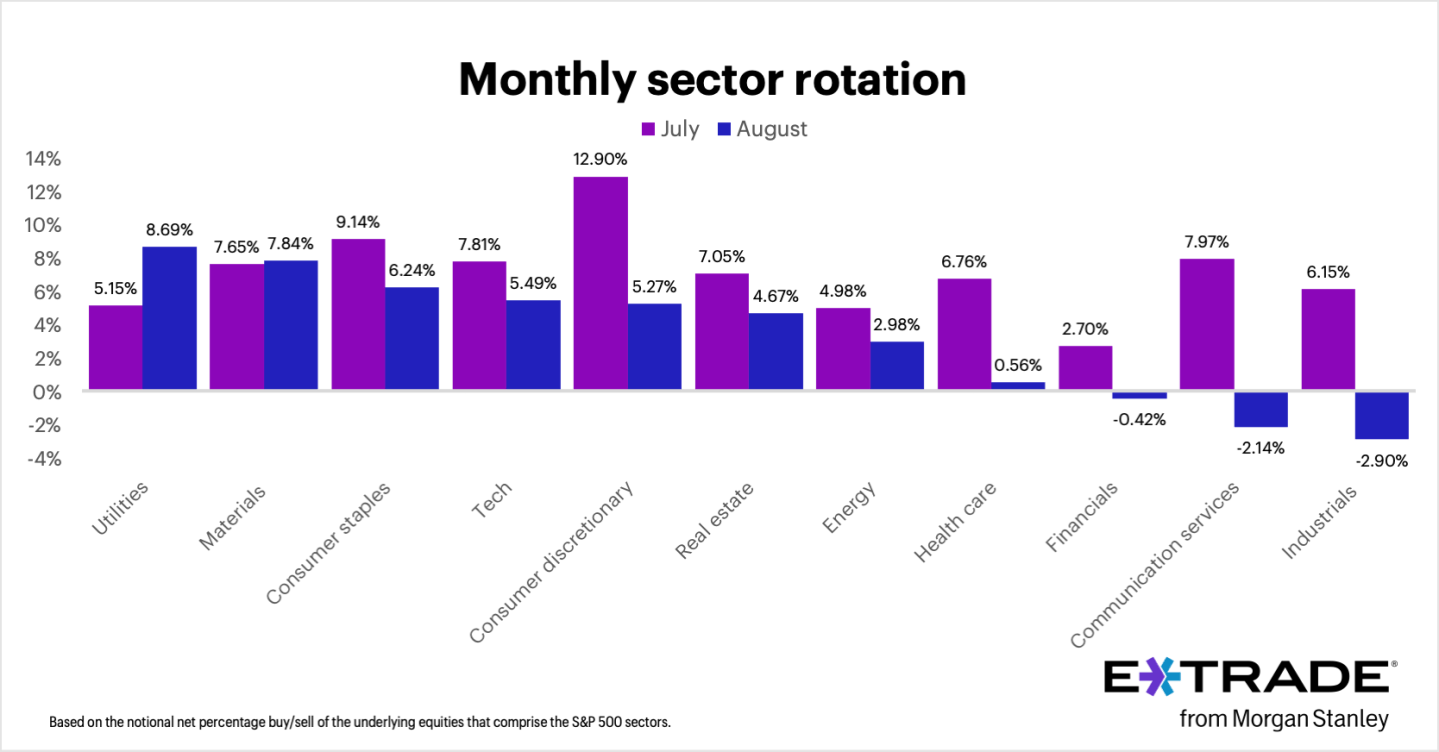Ethics & Policy
Tech leaders in financial services say responsible AI is necessary to unlock GenAI value

Good morning. CFOs are increasingly responsible for aligning AI investments with business goals, measuring ROI, and ensuring ethical adoption. But is responsible AI an overlooked value creator?
Scott Zoldi, chief analytics officer at FICO and author of more than 35 patents in responsible AI methods, found that many customers he’s spoken to lacked a clear concept of responsible AI—aligning AI ethically with an organizational purpose—prompting an in-depth look at how tech leaders are managing it.
According to a new FICO report released this morning, responsible AI standards are considered essential innovation enablers by senior technology and AI leaders at financial services firms. More than half (56%) named responsible AI a leading contributor to ROI, compared to 40% who credited generative AI for bottom-line improvements.
The report, based on a global survey of 254 financial services technology leaders, explores the dynamic between chief AI/analytics officers—who focus on AI strategy, governance, and ethics—and CTOs/CIOs, who manage core technology operations and alignment with company objectives.
Zoldi explained that, while generative AI is valuable, tech leaders see the most critical problems and ROI gains arising from responsible AI and true synchronization of AI investments with business strategy—a gap that still exists in most firms. Only 5% of respondents reported strong alignment between AI initiatives and business goals, leaving 95% lagging in this area, according to the findings.
In addition, 72% of chief AI officers and chief analytics officers cite insufficient collaboration between business and IT as a major barrier to company alignment. Departments often work from different metrics, assumptions, and roadmaps.
This difficulty is compounded by a widespread lack of AI literacy. More than 65% said weak AI literacy inhibits scaling. Meanwhile, CIOs and CTOs report that only 12% of organizations have fully integrated AI operational standards.
In the FICO report, State Street’s Barbara Widholm notes, “Tech-led solutions lack strategic nuance, while AI-led initiatives can miss infrastructure constraints. Cross-functional alignment is critical.”
Chief AI officers are challenged to keep up with the rapid evolution of AI. Mastercard’s chief AI and data officer, Greg Ulrich, recently told Fortune that last year was “early innings,” focused on education and experimentation, but that the role is shifting from architect to operator: “We’ve moved from exploration to execution.”
Across the board, FICO found that about 75% of tech leaders surveyed believe stronger collaboration between business and IT leaders, together with a shared AI platform, could drive ROI gains of 50% or more. Zoldi highlighted the problem of fragmentation: “A bank in Australia I visited had 23 different AI platforms.”
When asked about innovation enablers, 83% of respondents rated cross-departmental collaboration as “very important” or “critical”—signaling that alignment is now foundational.
The report also stresses the importance of human-AI interaction: “Mature organizations will find the right marriage between the AI and the human,” Zoldi said. And that involves human understanding for where to ”best place AI in that loop,” he said.
Sheryl Estrada
sheryl.estrada@fortune.com
Leaderboard
Brian Robins was appointed CFO of Snowflake (NYSE: SNOW), an AI Data Cloud company, effective Sept. 22. Snowflake also announced that Mike Scarpelli is retiring as CFO. Scarpelli will stay a Snowflake employee for a transition period. Robins has served as CFO of GitLab Inc., a technology company, since October 2020. Before that, he was CFO of Sisense, Cylance, AlienVault, and Verisign.
Big Deal
August marked the S&P 500’s fourth consecutive month of gains, with E*TRADE clients net buyers in eight out of 11 sectors, Chris Larkin, managing director of trading and investing, said in a statement. “But some of that buying was contrarian and possibly defensive,” Larkin noted. “Clients rotated most into utilities, a defensive sector that was actually the S&P 500’s weakest performer last month. Another traditionally defensive sector, consumer staples, received the third-most net buying.” By contrast, clients were net sellers in three sectors—industrials, communication services, and financials—which have been among the S&P 500’s stronger performers so far this year.
“Given September’s history as the weakest month of the year for stocks, it’s possible that some investors booked profits from recent winners while increasing positions in defensive areas of their portfolios,” Larkin added.

Going deeper
“Warren Buffett’s $57 billion face-plant: Kraft Heinz breaks up a decade after his megamerger soured” is a Fortune report by Eva Roytburg.
From the report: “Kraft Heinz, the packaged-food giant created in 2015 by Warren Buffett and Brazilian private equity firm 3G Capital, is officially breaking up. The Tuesday announcement ends one of Buffett’s highest-profile bets—and one of his most painful—as the merger that once promised efficiency and dominance instead wiped out roughly $57 billion, or 60%, in market value. Shares slid 7% after the announcement, and Berkshire Hathaway still owns a 27.5% stake.” You can read the complete report here.
Overheard
“Effective change management is the linchpin of enterprise-wide AI implementation, yet it’s often underestimated. I learned this first-hand in my early days as CEO at Sanofi.”
—Paul Hudson, CEO of global healthcare company Sanofi since September 2019, writes in a Fortune opinion piece. Previously, Hudson was CEO of Novartis Pharmaceuticals from 2016 to 2019.
Ethics & Policy
$40 Million Series B Raised To Drive Ethical AI And Empower Publishers

ProRataAI, a company committed to building AI solutions that honor and reward the work of content creators, has announced the close of a $40 million Series B funding round. The round was led by Touring Capital, with participation from a growing network of investors who share ProRata’s vision for a more equitable and transparent AI ecosystem. This latest investment brings the company’s total funding to over $75 million since its founding just last year, and it marks a significant step forward in its mission to reshape how publishers engage with generative AI.
The company also announced the launch of Gist Answers, ProRata’s new AI-as-a-service platform designed to give publishers direct control over how AI interacts with their content. Gist Answers allows media organizations to embed custom AI search, summarization, and recommendation tools directly into their websites and digital properties. Rather than watching their content be scraped and repurposed without consent, publishers can now offer AI-powered experiences on their own terms—driving deeper engagement, longer user sessions, and more meaningful interactions with their audiences.
The platform has already attracted early-access partners representing over 100 publications, a testament to the growing demand for AI tools that respect editorial integrity and support sustainable business models. Gist Answers is designed to be flexible and intuitive, allowing publishers to tailor the AI experience to their brand’s voice and editorial standards. It’s not just about delivering answers—it’s about creating a richer, more interactive layer of discovery that keeps users engaged and informed.
Beyond direct integration, ProRata is also offering publishers the opportunity to license their content to inform Gist Answers across third-party destinations. More than 700 high-quality publications around the world have already joined this initiative, contributing to a growing network of licensed content that powers AI responses with verified, attributable information. This model is underpinned by ProRata’s proprietary content attribution technology, which ensures that every piece of content used by the AI is properly credited and compensated. In doing so, the company is building a framework where human creativity is not only preserved but actively rewarded in the AI economy.
Gist Answers is designed to work seamlessly with Gist Ads, ProRata’s innovative advertising platform that transforms AI-generated responses into premium ad inventory. By placing native, conversational ads adjacent to AI answers, Gist Ads creates a format that aligns with user intent and delivers strong performance for marketers. For publishers, this means new revenue streams that are directly tied to the value of their content and the engagement it drives.
ProRata’s approach stands in stark contrast to the extractive models that have dominated the early days of generative AI. The company was founded on the belief that the work of journalists, creators, and publishers is not just data to be mined—it’s a vital source of knowledge and insight that deserves recognition, protection, and compensation. By building systems that prioritize licensing over scraping, transparency over opacity, and partnership over exploitation, ProRata is proving that AI can be both powerful and principled.
How the funding will be used: With the Series B funding, ProRata plans to scale its team, expand its product offerings, and deepen its relationships with publishers and content creators around the world. The company is focused on building tools that are not only technologically advanced but also aligned with the values of the people who produce the content that fuels AI. As generative AI continues to evolve, ProRata is positioning itself as a trusted partner for publishers seeking to navigate this new landscape with confidence and integrity.
KEY QUOTES:
“Search has always shaped how people discover knowledge, but for too long publishers have been forced to give that power away. Gist Answers changes that dynamic, bringing AI search directly to their sites, where it deepens engagement, restores control, and opens entirely new paths for discovery.”
Bill Gross, CEO and founder of ProRata
“Generative AI is reshaping search and digital advertising, creating an opportunity for a new category of infrastructure to compensate content creators whose work powers the answers we are relying on daily. ProRata is addressing this inflection point with a market-neutral model designed to become the default platform for attribution and fair monetization across the ecosystem. We believe the shift toward AI-native search experiences will unlock greater value for advertisers, publishers, and consumers alike.”
Nagraj Kashyap, General Partner, Touring Capital
“As a publisher, our priority is making sure our journalism reaches audiences in trusted ways. By contributing our content to the Gist network, we know it’s being used ethically, with full credit, while also helping adopters of Gist Answers deliver accurate, high-quality responses to their readers.”
Nicholas Thompson, CEO of The Atlantic
“The role of publishers in the AI era is to ensure that trusted journalism remains central to how people search and learn. By partnering with ProRata, we’re showing how an established brand can embrace new technology like Gist Answers to deepen engagement and demonstrate the enduring value of quality journalism.”
Andrew Perlman, CEO of Recurrent, owner of Popular Science
“Search has always been critical to how our readers find and interact with content. With Gist Answers, our audience can engage directly with us and get trusted answers sourced from our reporting, strengthened by content from a vetted network of international media outlets. Engagement is higher, and we’re able to explore new revenue opportunities that simply didn’t exist before.”
Jeremy Gulban, CEO of CherryRoad Media
“We’re really excited to be partnering with ProRata. At Arena, we’re always looking for unique and innovative ways to better serve our audience, and Gist Answers allows us to adapt to new technology in an ethical way.”
Paul Edmondson, CEO of The Arena Group, owner of Parade and Athlon Sports
Ethics & Policy
Michael Lissack’s New Book “Questioning Understanding”

Image: https://www.globalnewslines.com/uploads/2025/09/06b23a7a1cd3a9eec5188c16c0896a60.jpg
Photo Courtesy: Michael Lissack
“Understanding is not a destination we reach, but a spiral we climb-each new question changes the view, and each new view reveals questions we couldn’t see before.”
Michael Lissack, Executive Director of the Second Order Science Foundation, cybernetics expert, and professor at Tongji University, has released his new book, “Questioning Understanding [https://www.amazon.com/Questioning-Understanding-Michael-Lissack/dp/B0FC1S1LYL].” Now available, the book explores a fresh perspective on scientific inquiry by encouraging readers to reconsider the assumptions that shape how we understand the world.
A Thought-Provoking Approach to Scientific Inquiry
In “Questioning Understanding,” Lissack introduces the concept of second-order science, a framework that examines the uncritically examined presuppositions (UCEPs) that often underlie scientific practices. These assumptions, while sometimes essential for scientific work, may also constrain our ability to explore complex phenomena fully. Lissack suggests that by engaging with these assumptions critically, there could be potential for a deeper understanding of the scientific process and its role in advancing human knowledge.
The book features an innovative tete-beche format, offering two entry points for readers: “Questioning right Understanding” or “Understanding right Questioning.” This structure reflects the dynamic relationship between knowledge and inquiry, aiming to highlight how questioning and understanding are interconnected and reciprocal. By offering two different entry paths, Lissack emphasizes that the journey of scientific inquiry is not linear. Instead, it’s a continuous process of revisiting previous assumptions and refining the lens through which we view the world.
The Battle Against Sloppy Science
Lissack’s work took on new urgency during the COVID-19 pandemic, when he witnessed an explosion of what he calls “slodderwetenschap”-Dutch for “sloppy science”-characterized by shortcuts, oversimplifications, and the proliferation of “truthies” (assertions that feel true regardless of their validity).
Working with colleague Brenden Meagher, Lissack identified how sloppy science undermines public trust through what he calls the “3Ts”-Truthies, TL;DR (oversimplification), and TCUSI (taking complex understanding for simple information). Their research revealed how “truthies spread rampantly during the pandemic, damaging public health communication” through “biased attention, confirmation bias, and confusion between surface information and deeper meanings”.
“COVID-19 demonstrated that good science seldom comes from taking shortcuts or relying on ‘truthies,'” Lissack notes.
“Good science, instead, demands that we continually ask what about a given factoid, label, category, or narrative affords its meaning-and then to base further inquiry on the assumptions, contexts, and constraints so revealed.”
AI as the New Frontier of Questioning
As AI technologies, including Large Language Models (LLMs), continue to influence research and scientific methods, Lissack’s work has become increasingly relevant. In his book “Questioning Understanding”, Lissack presents a thoughtful examination of AI in scientific research, urging a responsible approach to its use. He discusses how AI tools may support scientific progress but also notes that their potential limitations can undermine the rigor of research if used uncritically.
“AI tools have the capacity to both support and challenge the quality of scientific inquiry, depending on how they are employed,” says Lissack.
“It is essential that we engage with AI systems as partners in discovery-through reflective dialogue-rather than relying on them as simple solutions to complex problems.”
He stresses that while AI can significantly accelerate research, it is still important for human researchers to remain critically engaged with the data and models produced, questioning the assumptions encoded within AI systems.
With over 2,130 citations on Google Scholar, Lissack’s work continues to shape discussions on how knowledge is created and applied in modern research. His innovative ideas have influenced numerous fields, from cybernetics to the integration of AI in scientific inquiry.
Recognition and Global Impact
Lissack’s contributions to the academic world have earned him significant recognition. He was named among “Wall Street’s 25 Smartest Players” by Worth Magazine and included in the “100 Americans Who Most Influenced How We Think About Money.” His efforts extend beyond personal recognition; he advocates for a research landscape that emphasizes integrity, critical thinking, and ethical foresight in the application of emerging technologies, ensuring that these tools foster scientific progress without compromising standards.
About “Questioning Understanding”
“Questioning Understanding” provides an in-depth exploration of the assumptions that guide scientific inquiry, urging readers to challenge their perspectives. Designed as a tete-beche edition-two books in one with dual covers and no single entry point-it forces readers to choose where to begin: “Questioning right Understanding” or “Understanding right Questioning.” This innovative format reflects the recursive relationship between inquiry and insight at the heart of his work.
As Michael explains: “Understanding is fluid… if understanding is a river, questions shape the canyon the river flows in.” The book demonstrates how our assumptions about knowledge creation itself shape what we can discover, making the case for what he calls “reflexive scientific practice”-science that consciously examines its own presuppositions.
Image: https://www.globalnewslines.com/uploads/2025/09/a01d49d4c742e01bea6bfeb0a16f3132.jpg
Photo Courtesy: Michael Lissack
About Michael Lissack
Michael Lissack is a globally recognized figure in second-order science, cybernetics, and AI ethics. He is the Executive Director of the Second Order Science Foundation and a Professor of Design and Innovation at Tongji University in Shanghai. Lissack has served as President of the American Society for Cybernetics and is widely acknowledged for his contributions to the field of complexity science and the promotion of rigorous, ethical research practices.
Building on foundational work in cybernetics and complexity science, Lissack developed the framework of UnCritically Examined Presuppositions (UCEPs)-nine key dimensions, including context dependence, quantitative indexicality, and fundierung dependence, that act as “enabling constraints” in scientific inquiry. These hidden assumptions simultaneously make scientific work possible while limiting what can be observed or understood.
As Lissack explains: “Second order science examines variations in values assumed for these UCEPs and looks at the resulting impacts on related scientific claims. Second order science reveals hidden issues, problems, and assumptions which all too often escape the attention of the practicing scientist.”
Michael Lissack’s books are available through major retailers. Learn more about his work at lissack.com [https://www.lissack.com/] and the Second Order Science Foundation at secondorderscience.org [https://www.secondorderscience.org/].
Media Contact
Company Name: Digital Networking Agency
Email: Send Email [http://www.universalpressrelease.com/?pr=michael-lissacks-new-book-questioning-understanding-explores-the-future-of-scientific-inquiry-and-ai-ethics]
Phone: +1 571 233 9913
Country: United States
Website: https://www.digitalnetworkingagency.com/
Legal Disclaimer: Information contained on this page is provided by an independent third-party content provider. GetNews makes no warranties or responsibility or liability for the accuracy, content, images, videos, licenses, completeness, legality, or reliability of the information contained in this article. If you are affiliated with this article or have any complaints or copyright issues related to this article and would like it to be removed, please contact retract@swscontact.com
This release was published on openPR.
Ethics & Policy
Michael Lissack’s New Book “Questioning Understanding” Explores the Future of Scientific Inquiry and AI Ethics

Photo Courtesy: Michael Lissack
“Understanding is not a destination we reach, but a spiral we climb—each new question changes the view, and each new view reveals questions we couldn’t see before.”
Michael Lissack, Executive Director of the Second Order Science Foundation, cybernetics expert, and professor at Tongji University, has released his new book, “Questioning Understanding.” Now available, the book explores a fresh perspective on scientific inquiry by encouraging readers to reconsider the assumptions that shape how we understand the world.
A Thought-Provoking Approach to Scientific Inquiry
In “Questioning Understanding,” Lissack introduces the concept of second-order science, a framework that examines the uncritically examined presuppositions (UCEPs) that often underlie scientific practices. These assumptions, while sometimes essential for scientific work, may also constrain our ability to explore complex phenomena fully. Lissack suggests that by engaging with these assumptions critically, there could be potential for a deeper understanding of the scientific process and its role in advancing human knowledge.
The book features an innovative tête-bêche format, offering two entry points for readers: “Questioning → Understanding” or “Understanding → Questioning.” This structure reflects the dynamic relationship between knowledge and inquiry, aiming to highlight how questioning and understanding are interconnected and reciprocal. By offering two different entry paths, Lissack emphasizes that the journey of scientific inquiry is not linear. Instead, it’s a continuous process of revisiting previous assumptions and refining the lens through which we view the world.
The Battle Against Sloppy Science
Lissack’s work took on new urgency during the COVID-19 pandemic, when he witnessed an explosion of what he calls “slodderwetenschap”—Dutch for “sloppy science”—characterized by shortcuts, oversimplifications, and the proliferation of “truthies” (assertions that feel true regardless of their validity).
Working with colleague Brenden Meagher, Lissack identified how sloppy science undermines public trust through what he calls the “3Ts”—Truthies, TL;DR (oversimplification), and TCUSI (taking complex understanding for simple information). Their research revealed how “truthies spread rampantly during the pandemic, damaging public health communication” through “biased attention, confirmation bias, and confusion between surface information and deeper meanings”.
“COVID-19 demonstrated that good science seldom comes from taking shortcuts or relying on ‘truthies,'” Lissack notes.
“Good science, instead, demands that we continually ask what about a given factoid, label, category, or narrative affords its meaning—and then to base further inquiry on the assumptions, contexts, and constraints so revealed.”
AI as the New Frontier of Questioning
As AI technologies, including Large Language Models (LLMs), continue to influence research and scientific methods, Lissack’s work has become increasingly relevant. In his book “Questioning Understanding”, Lissack presents a thoughtful examination of AI in scientific research, urging a responsible approach to its use. He discusses how AI tools may support scientific progress but also notes that their potential limitations can undermine the rigor of research if used uncritically.
“AI tools have the capacity to both support and challenge the quality of scientific inquiry, depending on how they are employed,” says Lissack.
“It is essential that we engage with AI systems as partners in discovery—through reflective dialogue—rather than relying on them as simple solutions to complex problems.”
He stresses that while AI can significantly accelerate research, it is still important for human researchers to remain critically engaged with the data and models produced, questioning the assumptions encoded within AI systems.
With over 2,130 citations on Google Scholar, Lissack’s work continues to shape discussions on how knowledge is created and applied in modern research. His innovative ideas have influenced numerous fields, from cybernetics to the integration of AI in scientific inquiry.
Recognition and Global Impact
Lissack’s contributions to the academic world have earned him significant recognition. He was named among “Wall Street’s 25 Smartest Players” by Worth Magazine and included in the “100 Americans Who Most Influenced How We Think About Money.” His efforts extend beyond personal recognition; he advocates for a research landscape that emphasizes integrity, critical thinking, and ethical foresight in the application of emerging technologies, ensuring that these tools foster scientific progress without compromising standards.
About “Questioning Understanding”
“Questioning Understanding” provides an in-depth exploration of the assumptions that guide scientific inquiry, urging readers to challenge their perspectives. Designed as a tête-bêche edition—two books in one with dual covers and no single entry point—it forces readers to choose where to begin: “Questioning → Understanding” or “Understanding → Questioning.” This innovative format reflects the recursive relationship between inquiry and insight at the heart of his work.
As Michael explains: “Understanding is fluid… if understanding is a river, questions shape the canyon the river flows in.” The book demonstrates how our assumptions about knowledge creation itself shape what we can discover, making the case for what he calls “reflexive scientific practice”—science that consciously examines its own presuppositions.

Photo Courtesy: Michael Lissack
About Michael Lissack
Michael Lissack is a globally recognized figure in second-order science, cybernetics, and AI ethics. He is the Executive Director of the Second Order Science Foundation and a Professor of Design and Innovation at Tongji University in Shanghai. Lissack has served as President of the American Society for Cybernetics and is widely acknowledged for his contributions to the field of complexity science and the promotion of rigorous, ethical research practices.
Building on foundational work in cybernetics and complexity science, Lissack developed the framework of UnCritically Examined Presuppositions (UCEPs)—nine key dimensions, including context dependence, quantitative indexicality, and fundierung dependence, that act as “enabling constraints” in scientific inquiry. These hidden assumptions simultaneously make scientific work possible while limiting what can be observed or understood.
As Lissack explains: “Second order science examines variations in values assumed for these UCEPs and looks at the resulting impacts on related scientific claims. Second order science reveals hidden issues, problems, and assumptions which all too often escape the attention of the practicing scientist.”
Michael Lissack’s books are available through major retailers. Learn more about his work at lissack.com and the Second Order Science Foundation at secondorderscience.org.
Media Contact
Company Name: Digital Networking Agency
Email: Send Email
Phone: +1 571 233 9913
Country: United States
Website: https://www.digitalnetworkingagency.com/
-

 Business1 week ago
Business1 week agoThe Guardian view on Trump and the Fed: independence is no substitute for accountability | Editorial
-
Tools & Platforms4 weeks ago
Building Trust in Military AI Starts with Opening the Black Box – War on the Rocks
-

 Ethics & Policy1 month ago
Ethics & Policy1 month agoSDAIA Supports Saudi Arabia’s Leadership in Shaping Global AI Ethics, Policy, and Research – وكالة الأنباء السعودية
-

 Events & Conferences4 months ago
Events & Conferences4 months agoJourney to 1000 models: Scaling Instagram’s recommendation system
-

 Jobs & Careers2 months ago
Jobs & Careers2 months agoMumbai-based Perplexity Alternative Has 60k+ Users Without Funding
-

 Education2 months ago
Education2 months agoVEX Robotics launches AI-powered classroom robotics system
-

 Podcasts & Talks2 months ago
Podcasts & Talks2 months agoHappy 4th of July! 🎆 Made with Veo 3 in Gemini
-

 Funding & Business2 months ago
Funding & Business2 months agoKayak and Expedia race to build AI travel agents that turn social posts into itineraries
-

 Education2 months ago
Education2 months agoMacron says UK and France have duty to tackle illegal migration ‘with humanity, solidarity and firmness’ – UK politics live | Politics
-

 Podcasts & Talks2 months ago
Podcasts & Talks2 months agoOpenAI 🤝 @teamganassi





















